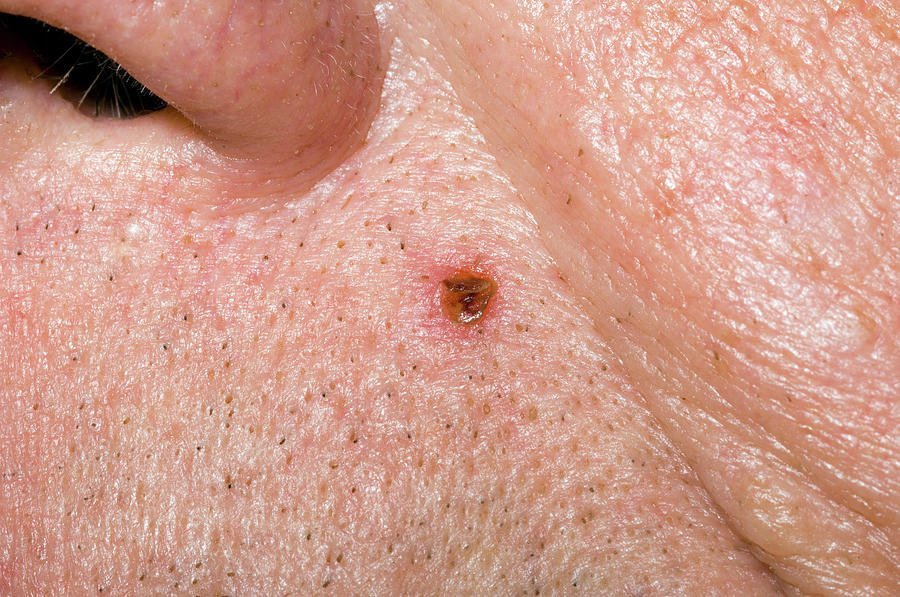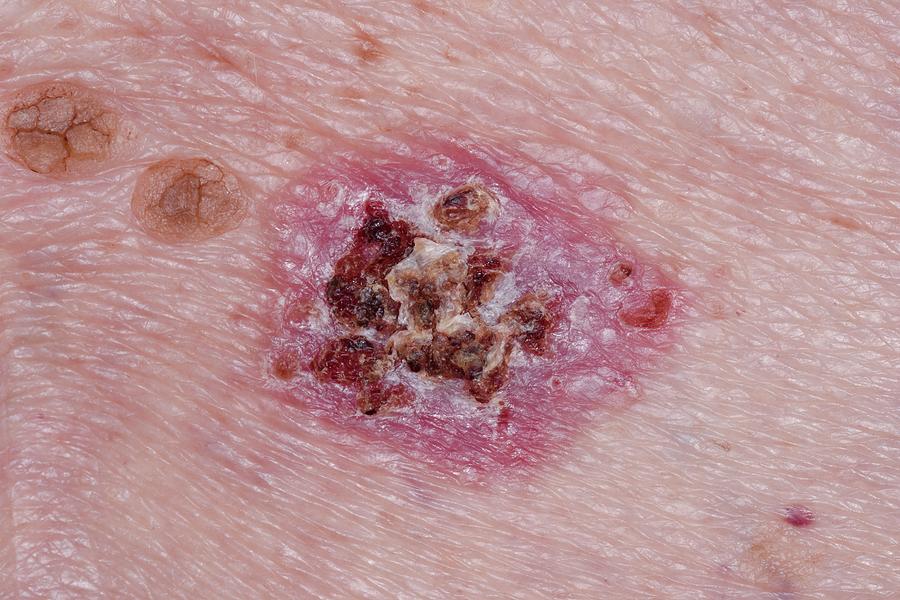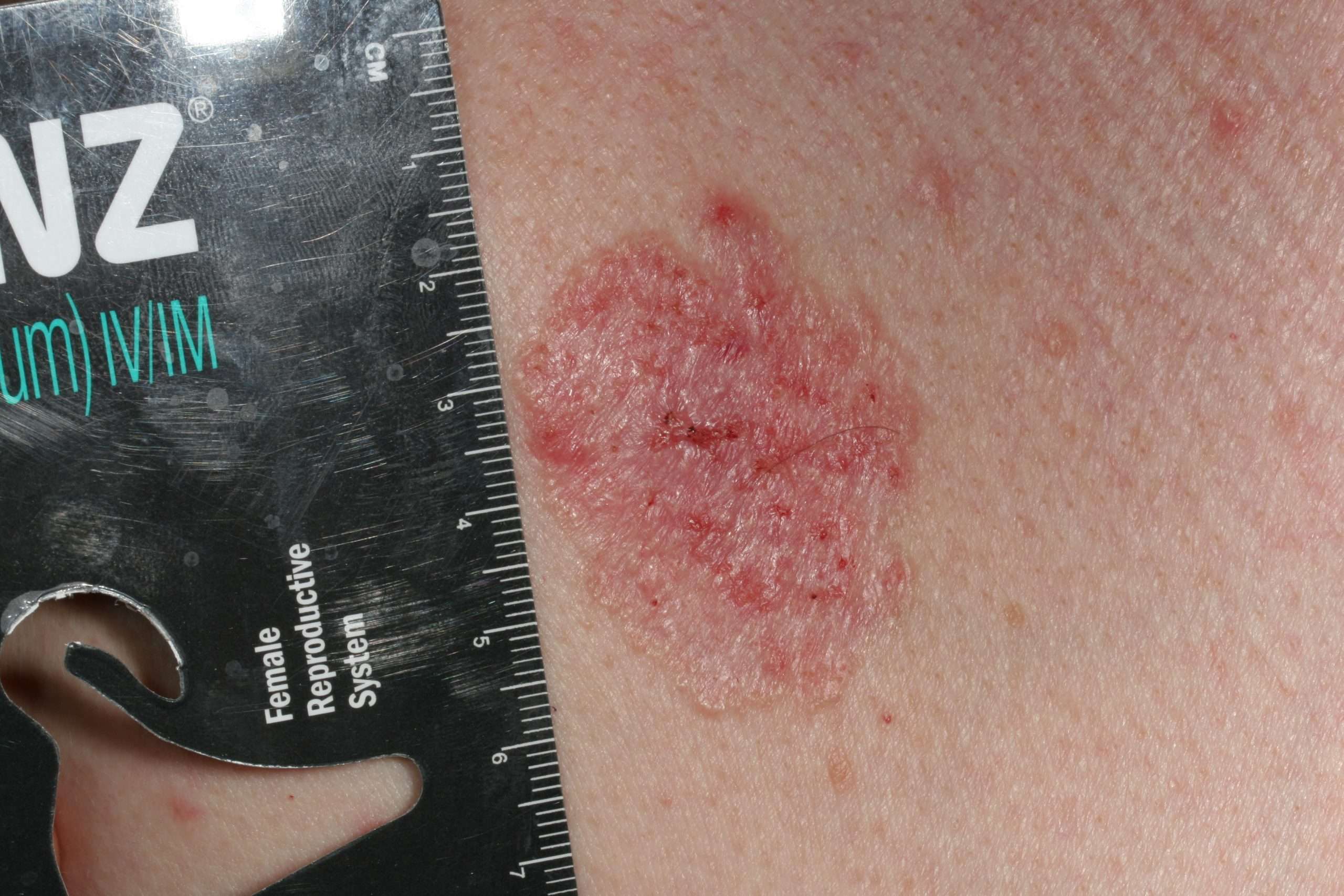I’m Worried I May Have Skin Cancer
Take a deep breath. Chances are, you probably know a relative, friend, or neighbor who have had skin cancer. You may even know someone who passed away from cancer. It is important to recognize that not all skin cancers are the same. Some are less aggressive when caught early, like basal cell carcinoma. Others, like melanoma or Merkle cell carcinoma, may be more dangerous.
If you are worried about a lesion, please make an appointment to see one of our dermatology specialists. There is no substitute for a trained provider giving you the reassurance or testing you need to arrive at the diagnosis. While it is tempting to ask Dr. Google and self diagnose it is much safer to schedule a quick visit for our providers to give you peace of mind.
How Long Does It Take To Recover From Basal Cell Carcinoma Surgery
Wound recovery from basal cell carcinoma would typically take up to 4 to 6 weeks, depending on the size. Symptoms such as infection, bleeding, and pain are highly unlikely. The wound is closed with stitches, which is important in minimizing the scar or when the skins natural healing is not enough. For more information on basal cell carcinoma, visit our website by clicking this link.
How Can Basal Cell Carcinoma Of Vulva Be Prevented
Currently, there are no preventive measures against Basal Cell Carcinoma of Vulva. However, the following factors may help reduce the risk for the condition:
- Avoiding or minimizing sun exposure
- Limiting the use of tanning beds, tanning parlors
- Smoking cessation
- Treating the underlying condition that caused the tumor may help in the treatment and early cure of BCC of Vulva
Regular medical screening at periodic intervals with blood tests, scans, and physical examinations, are imperative, since this type of tumor has metastasizing potential and high possibility of recurrence. Often, several years of active vigilance is necessary.
Read Also: How To Detect Melanoma Early
Additional And Relevant Useful Information For Superficial Basal Cell Carcinoma Of Skin:
There are multiple types of Basal Cell Carcinoma of Skin:
- Superficial Basal Cell Carcinoma of Skin
- Nodular Basal Cell Carcinoma of Skin
- Infiltrating Basal Cell Carcinoma of Skin
- Micronodular Basal Cell Carcinoma of Skin
- Fibroepithelial Basal Cell Carcinoma of Skin
- Basal Cell Carcinoma of Skin with Adnexal Differentiation
- Basosquamous Carcinoma of Skin
- Keratotic Basal Cell Carcinoma of Skin
Expert Review And References

- Christensen SR, Leffell DJ. Cancer of the skin. DeVita VT Jr, Lawrence TS, Rosenberg SA. Cancer: Principles and Practice of Oncology. 10th ed. Wolters Kluwer Health/Lippincott Williams & Wilkins 2015: 92:1314-1336.
- National Cancer Institute. Skin Cancer Treatment for Health Professionals . 2015: .
- National Comprehensive Cancer Network. NCCN Clinical Practice Guidelines in Oncology: Basal Cell Skin Cancer . 2015.
- Zloty D, Guenther LC, Sapijaszko M et al. Non-melanoma skin cancer in Canada chapter 4: management of basal cell carcinoma. Journal of Cutaneous Medicine and Surgery. 2015.
You May Like: What Are The Risk Factors Of Basal Cell Carcinoma
New Proposed Burn Pit Legislation 2021
As of 2021, there are several major bills currently pending in Congress that deal with the toxic exposure caused by burn pits. These bills include:
- Conceding Our Veterans Exposure Now and Necessitating Training Act
- Presumptive Benefits for War Fighters Exposed to Burn Pits and Other Toxins Act of 2021
- Veterans Burn Pit Exposure Recognition Act
- Toxic Exposure in the American Military Act
Any of these bills, if passed, would offer needed relief to veterans suffering the toxic effects of burn pit exposure.
What Causes Basal Cell Carcinoma
Ultraviolet radiation from the sun and indoor tanning are the major causes of basal cell carcinoma and most skin cancers, according to the Skin Cancer Foundation. Other risk factors include a history of skin cancer, including squamous cell carcinoma or melanoma, having fair skin, chronic infections, and skin inflammation from burns, scars, and other conditions. BCC is more likely to appear in people over the age of 50 and in men.
Increased risk for basal cell carcinoma includes a history of blistering sunburns in youth and intermittent or chronic exposure to the sun. A contributing factor could be growing up in a tropical place, under an ozone hole, or near the equator, says , an assistant professor of dermatology at NYU Langone Health and a dermatologic surgeon specializing in Mohs surgery treatment for skin cancer.
People think that as long as they put on sunscreen theyre protected, but if youre still getting burned or tanned your skin hasnt been protected in the way that you think, says Dr. Stevenson. Maybe you have some protection, but youre still doing damage to the DNA, which can also cause photoaging, wrinkles, and sun spots.
Stevenson urges people with fair skin and sensitive skin to be extra vigilant about sun protection.
I often tell patients there are some things that arent fair. Some people can eat whatever they want and stay very trim, and some people can be in the sun and not have as many issues as others, she says.
Read Also: Does Squamous Cell Carcinoma Come Back
When Should I See My Doctor
If you have had one BCC, you have a 50% chance of developing another one, so it is important to check your skin regularly.
Most people find BCCs by checking their own skin and looking for changes. See a doctor if you find:
- a spot that is different from other spots on your skin
- a spot that has changed size, shape, colour or texture
- a sore that doesnt heal
- a sore that is itchy or bleeds
Squamous Cell Skin Cancer
SCC is generally faster growing than basal cell cancers. About 20 out of every 100 skin cancers are SCCs. They begin in cells called keratinocytes, which are found in the epidermis.
Most SCCs develop on areas of skin exposed to the sun. These areas include parts of the head, neck, and on the back of your hands and forearms. They can also develop on scars, areas of skin that have been burnt in the past, or that have been ulcerated for a long time.
SCCs don’t often spread. If they do, it’s most often to the deeper layers of the skin. They can spread to nearby lymph nodes and other parts of the body, but this is unusual.
Recommended Reading: Are There Stages Of Basal Cell Carcinoma
Enhancing Healthcare Team Outcomes
An evidence-based approach to basal cell cancer
Basal cell cancer is relatively common. Patients often first present to the primary care provider with complaints of an abnormal skin lesion. When diagnosed early, it has an excellent prognosis, but if there is a delay in diagnosis, the tumor can advance and lead to significant morbidity. Basal cell cancer is best managed by an interprofessional team that includes a dermatologist, mohs surgeon, plastic surgeon, nurse practitioner, primary care provider, and a dermatopathologist. Basal cell carcinomas typically have a slow growth rate and tend to be locally invasive. Tumors around the nose and eye can lead to vision loss. In most cases, surgical excision is curative. However, because recurrences can occur, these patients need long-term follow up.
What Is The Prognosis Of Basal Cell Carcinoma Of Vulva
- With early detection and prompt treatment, the prognosis of Basal Cell Carcinoma of Vulva is excellent. However, if it metastasizes to the local lymph nodes, the prognosis is guarded or unpredictable
- In cases of metastatic BCC of Vulva, the prognosis depends upon a set of several factors that include:
- Stage of tumor: With lower-stage tumors, when the tumor is confined to site of origin, the prognosis is usually excellent with appropriate therapy. In higher-stage tumors, such as tumors with metastasis, the prognosis is typically poor
- The surgical respectability of the tumor
- Overall health of the individual: Individuals with overall excellent health have better prognosis compared to those with poor health
- Age of the individual: Older individuals generally have poorer prognosis than younger individuals
- Whether the tumor is occurring for the first time, or is a recurrent tumor. Recurring tumors have a poorer prognosis compared to tumors that do not recur
- Response to treatment: Tumors that respond to treatment have better prognosis compared to tumors that do not respond so well to treatment
Recommended Reading: Can Skin Cancer Be Deadly
Major Genes For Melanoma
CDKN2A/p16 and p14/ARF
The major gene associated with melanoma is CDKN2A/p16, cyclin-dependent kinase inhibitor 2A, which is located on chromosome 9p21. This gene has multiple names and is commonly called by the name of its protein, p16. It is an upstream regulator of the retinoblastoma gene pathway, acting through the cyclin D1/cyclin-dependent kinase 4 complex. This tumor suppressor gene has been intensively studied in multiple-case families and in population-based series of melanoma cases. CDKN2A controls the passage of cells through the cell cycle and provides a mechanism for holding damaged cells at the G1/S checkpoint to permit repair of DNA damage before cellular replication. Loss of function of tumor suppressor genesa good example of which is CDKN2Ais a critical step in carcinogenesis for many tumor systems.
CDKN2A encodes two proteins, p16INK4a and p14ARF, both inhibitors of cellular senescence. The protein produced when the alternate reading frame for exon 1 is transcribed instead of the standard reading frame exerts its biological effects through the p53 pathway. It mediates cell cycle arrest at the G1 and G2/M checkpoints, complementing p16s block of G1/S progressionthereby facilitating cellular repair of DNA damage.
There are models that can predict whether an individual has a pathogenic variant in CDKN2A. However, in the era of widely available and inexpensive multigene testing, these models are not widely utilized clinically.
Pancreatic cancer
POT1
Is It Time For Your Annual Skin Check

One of the best ways to prevent basal cell carcinoma is to take steps to protect your skin from the sun, including daily sunscreen, protective clothing, and seeking shade whenever possible. If you have a high risk of developing skin cancer, then make sure that you dont miss your yearly skin check-up with your dermatologist.
Are you experiencing any symptoms that concern you? Schedule an appointment with the dermatologists at the Center for Surgical Dermatology. Were now accepting patients for telemedical appointments!
Dont Miss: How To Remove Skin Cancer
Recommended Reading: Does Sunburn Cause Skin Cancer
How Do People Find Bcc On Their Skin
Many people find it when they notice a spot, lump, or scaly patch on their skin that is growing or feels different from the rest of their skin. If you notice any spot on your skin that is growing, bleeding, or changing in any way, see a board-certified dermatologist. These doctors have the most training and experience in diagnosing skin cancer.
To find skin cancer early, dermatologists recommend that everyone check their own skin with a skin self-exam. This is especially important for people who have a higher risk of developing BCC. Youll find out what can increase your risk of getting this skin cancer at, Basal cell carcinoma: Who gets and causes.
Images used with permission of:
-
The American Academy of Dermatology National Library of Dermatologic Teaching Slides.
-
J Am Acad Dermatol. 2019 80:303-17.
What Are The Risk Factors For Superficial Basal Cell Carcinoma Of Skin
The risk factors that contribute to Superficial Basal Cell Carcinoma of Skin formation include:
- Prolonged sun exposure, exposure to ultraviolet light
- Use of tanning beds, tanning parlors
- Arsenic exposure
- Ionizing radiation
- Smoking
- The presence of certain genetic syndromes such as basal cell nevus syndrome increases the risk
- Caucasians are more vulnerable compared to other darker-toned individuals
It is important to note that having a risk factor does not mean that one will get the condition. A risk factor increases one’s chances of getting a condition compared to an individual without the risk factors. Some risk factors are more important than others.
Also, not having a risk factor does not mean that an individual will not get the condition. It is always important to discuss the effect of risk factors with your healthcare provider.
You May Like: What Race Is More Likely To Get Skin Cancer
Basal Cell Carcinoma Stages
The stages of basal cell carcinoma may affect a patients treatment plan. The stage of BCC is based on whether or not the cancer has spread and how far. There are four cancer stages, but most nonmelanoma skin cancers, including BCC, are stages 0 or 1. Stage 3 and 4 are relatively rare, according to Stanford Health Care.
How Dangerous Is Bcc
While BCCs rarely spread beyond the original tumor site, if allowed to grow, these lesions can be disfiguring and dangerous. Untreated BCCs can become locally invasive, grow wide and deep into the skin and destroy skin, tissue and bone. The longer you wait to have a BCC treated, the more likely it is to recur, sometimes repeatedly.
There are some highly unusual, aggressive cases when BCC spreads to other parts of the body. In even rarer instances, this type of BCC can become life-threatening.
Also Check: Does Basal Cell Carcinoma Hurt
How Widespread Is Bcc
Basal cell carcinoma is quite common, and the number of reported cases in the U.S. has steadily increased.
- An estimated 3.6 million Americans are diagnosed with BCC each year.
- More than one out of every three new cancers are skin cancers, and the vast majority are BCCs.
- The diagnosis and treatment of nonmelanoma skin cancers, including BCC and squamous cell carcinoma , increased up to 77 percent between 1994 and 2014.
Reviewed by:
Diagnosing And Treating Basal Cell Carcinoma
To diagnose basal cell carcinoma, a doctor may perform a physical exam and inquire about a persons medical history. When diagnosing this skin condition, a person may also be referred to a dermatologist, a doctor who specializes in identifying and treating skin diseases.
Ultimately, a skin biopsy may be needed to determine if an area of the skin has cancer. The biopsy may remove the entirety of the tumor, which could treat the basal cell carcinoma. The sample taken in the skin biopsy is typically analyzed to determine if cancer is present.
There are various forms of treatment which may be used to remove basal cell carcinoma. The method of treatment used can be dependent upon a persons age and general health, as well as how big the tumor is and where it is located.
Some forms of treatment which may be used include surgery, radiation therapy, and chemotherapy. Cryotherapy may be used for some small tumors while immunotherapy can be used for more advanced basal cell cancers.
Also Check: What Is Precancerous Skin Cancer
What Is The Treatment For Advanced Or Metastatic Basal Cell Carcinoma
Locally advanced primary, recurrent or metastatic BCC requires multidisciplinary consultation. Often a combination of treatments is used.
- Radiotherapy
- Targeted therapy
Targeted therapy refers to the hedgehog signalling pathway inhibitors, vismodegib and sonidegib. These drugs have some important risks and side effects.
Additional And Relevant Useful Information For Basal Cell Carcinoma Of Vulva:

Although dirty skin is not considered a risk factor for developing Basal Cell Carcinoma of Vulva, keeping the skin clean helps avoid infections and other complications. However, it must be noted that aggressive cleaning of the skin and use of harsh chemicals and soaps should be avoided, so as to not worsen the condition.
Recommended Reading: What Causes Basal Cell Carcinoma Skin Cancer
Common Skin Cancer Can Signal Increased Risk Of Other Cancers
Frequent skin cancers due to mutations in genes responsible for repairing DNA are linked to a threefold risk of unrelated cancers, according to a Stanford study. The finding could help identify people for more vigilant screening.
Basal cell carcinomas are common. More than 3 million cases a year are diagnosed nationwide.jax10289/Shutterstock.com
People who develop abnormally frequent cases of a skin cancer known as basal cell carcinoma appear to be at significantly increased risk for developing of other cancers, including blood, breast, colon and prostate cancers, according to a preliminary study by researchers at the Stanford University School of Medicine.
The increased susceptibility is likely caused by mutations in a panel of proteins responsible for repairing DNA damage, the researchers found.
We discovered that people who develop six or more basal cell carcinomas during a 10-year period are about three times more likely than the general population to develop other, unrelated cancers, said Kavita Sarin, MD, PhD, assistant professor of dermatology. Were hopeful that this finding could be a way to identify people at an increased risk for a life-threatening malignancy before those cancers develop.
Sarin is the senior author of the study, which was published online Aug. 9 in JCI Insight. Medical student Hyunje Cho is the lead author.
What Is The Best Treatment For A Basal Cell Carcinoma
Pro Tip
If treated when small, basal cell carcinomas are easily removed. Dr. MacCormack
If you think you may have skin cancer, make an appointment with a dermatologist . They will examine the lump or sore and also the rest of your body for any other suspicious spots.
If skin cancer is suspected, the doctor will want to scrape or cut off a small piece of the lesion so it can be examined and tested for basal cell carcinoma cells in a laboratory.
If a biopsy confirms BCC, the dermatologist will likely offer several treatment options. Possibilities include in-office surgical procedures to remove the lesion, radiation therapy, or certain medications.
The type of treatment will depend on the size and location of the tumor, plus patient preference where possible. Your dermatologist will help you decide which approach is right for you.
Don’t Miss: Does Itchy Skin Mean Cancer